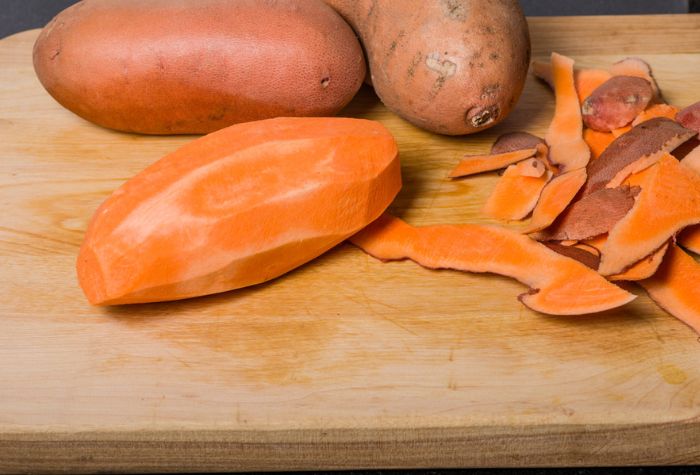The best bulgur substitutes to use in homemade tabbouleh, kibbeh, or pottage dishes. From quinoa to buckwheat, these are the best alternatives to use today.
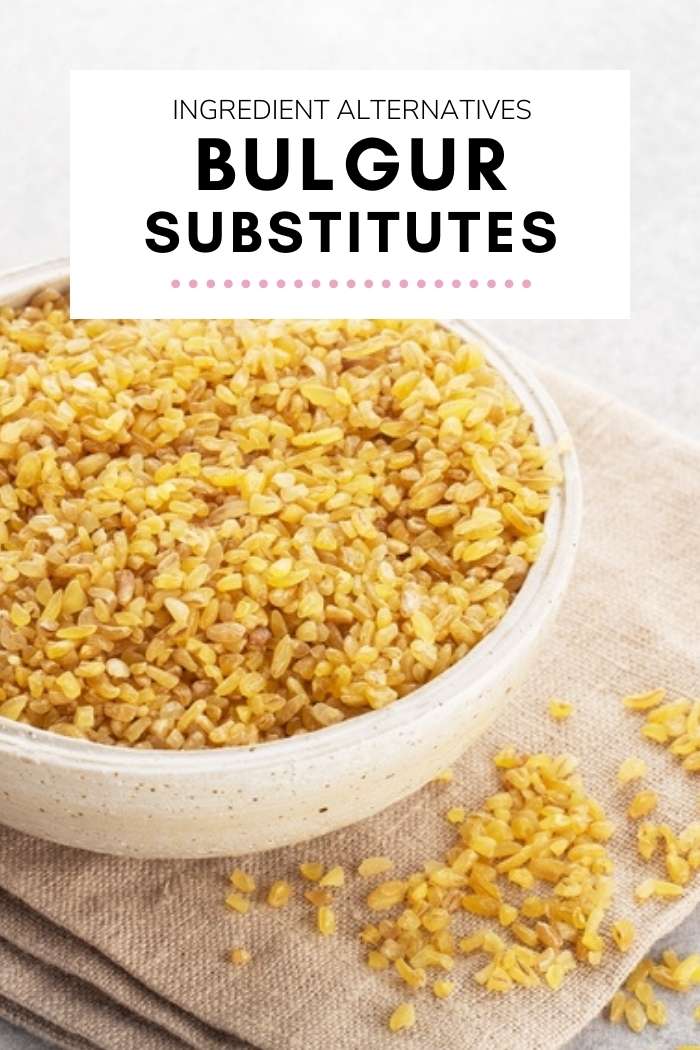
Bulgur is a cracked whole grain wheat berry. The resulting grains get cooked and then dried for you to prepare at your convenience. Bulgur cooks in only ten minutes and is common in Middle Eastern cuisine and as a binding agent.
If you don’t have any bulgur on hand or if you have run out at the last minute, you could become stuck for ideas regarding what to substitute it with. Your preparation time may double or even triple as you consider replacing it with ingredients that take longer to prepare. Or, without it, you may not have a binding agent for burgers, meatballs, or another similar dish you want to cook.
In many dishes, bulgur is critical to the meal’s success, and knowing what to substitute it with at the last minute may save the food!
The best bulgur substitutes are quinoa, rice, and wheat couscous. But, these ingredients have a slightly different texture than bulgur. While these ingredients have different textures, they all have neutral flavors and can often be substituted in the same ratio as bulgur. You can use these ingredients at the last minute to save any meal. They are also well-suited to Middle Eastern cuisine, where bulgur is most commonly found.
Here are some of the top bulgur substitutes. Most of these ingredients are versatile and easy to find at the store.
Buckwheat
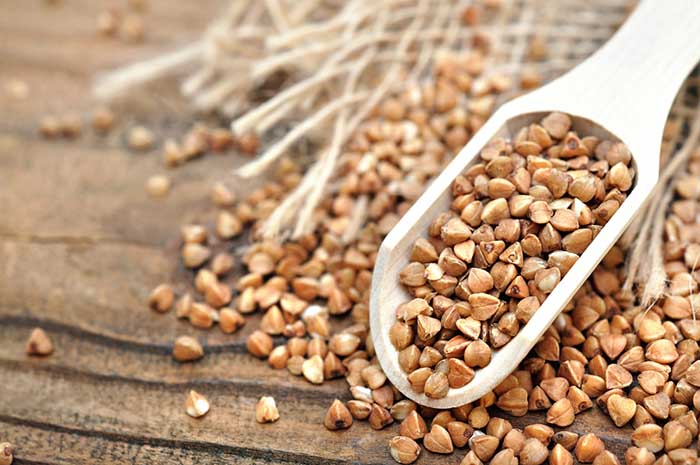
Buckwheat is a gluten-free seed, like quinoa, that is a great option for replacing bulgur. It is slightly more bitter than bulgur but works well as a replacement for bulgur in salads and soups. The seed is even better as a replacement for bulgur in bread, pizza dough, and a gluten-free pasta base.
Buckwheat takes around twenty minutes to cook, but it takes less time if you’ve pre-soaked the grain in water beforehand. Otherwise, a simple rinse of the ingredient before adding it to a pot to boil is sufficient.
Buckwheat can be expensive, which may mean it is not the ideal bulgur substitute. But this nutrient-dense food can be worth the cost if you’re looking for a bulgur replacement packed with fiber.
Millet
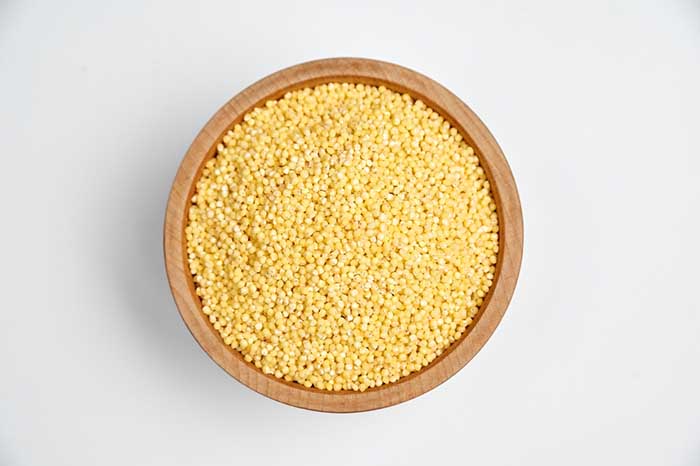
Millet grows around the world and is well-loved for a light texture that is very similar to bulgur. It also provides your dishes with a creamy texture and a satisfying nutty flavor.
Millet grains are small and sphere-shaped, making them the perfect base for veggies, sauce, and various meats.
While it isn’t common to use this grain as a rice or bulgur replacement, it works just as well. The best way to prepare it is to let the millet soak overnight before cooking it the next day. Pre-soaking this ingredient removes bitter-tasting acids and ensures a full flavor.
Millet is perfect for soups and pilafs but is often used in cereals. Due to its subtle flavor and neutral texture, millet is versatile. You can use it in sweet or savory dishes, depending on your preferences.
Barley
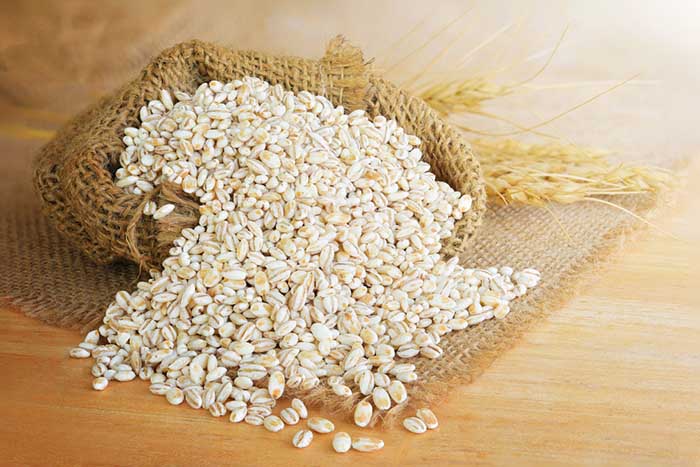
Barley isn’t a whole grain, but you could use it as a tasty replacement for bulgur, especially in meat-based recipes. It maintains the same nutty flavor but is chewier. This chewiness could change the texture of your dish and may make it a poor choice if you’re making a soup or stew.
Barley takes a long time to cook, up to an hour. But, you’ll get rewarded for your patience with a delicious base to any meat dish.
Barley is a simple substitution as cooks can use it as a 1:1 replacement.
Cracked Wheat
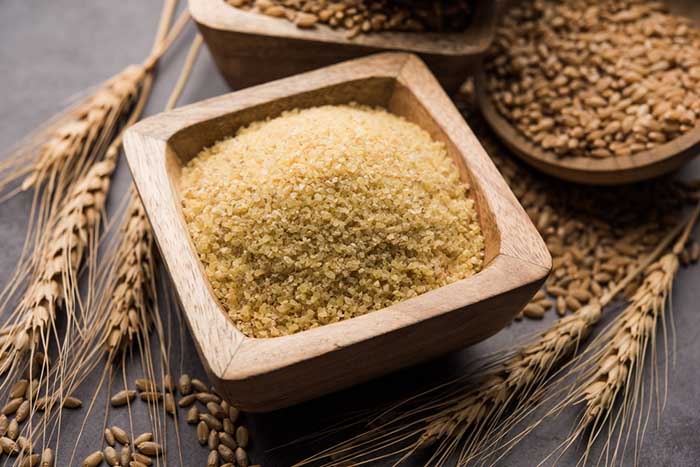
Cracked wheat is a product made from cracked or crushed whole wheat grains. This form of wheat is a fantastic bulgur substitute.
Cracked wheat is similar in taste, flavor, and texture to bulgur. It has the same characteristic nutty flavor and light texture. The best part? It’s easy to use in a variety of grain dishes and as a binding agent.
For every cup of bulgur, you need to substitute one cup of cracked wheat. This ratio means that in most situations, cracked wheat is going to be the best substitute you have available if you’ve run out of bulgur or can’t find it at the store.
Brown Rice
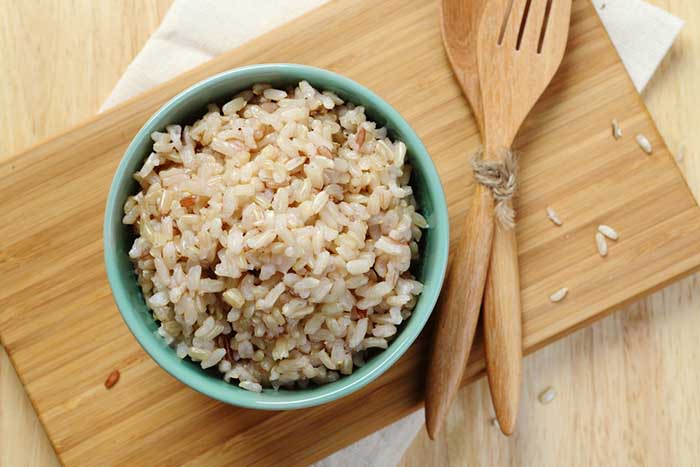
Brown rice is a popular bulgur substitute that has a softer texture and lighter flavor. But, unlike other ingredients on this list, you’re certain to be familiar with it. You likely know how long to cook it, and how it might change your meal. For every cup of bulgur you need, substitute one cup of rice.
Brown rice is a great bulgur replacement for:
- Stews
- Grain and veggie bowls
- Curries
The only downside to this alternative is that it takes longer to cook than bulgur, sometimes more than 30 minutes.
Brown rice is better than white rice as a bulgur replacement for numerous reasons. Firstly, it’s more similar to bulgur in taste and appearance. It also tends to be more filling and satisfying compared to white rice.
Rice is also the cheapest option on this list and the most readily available. You’ll have no trouble finding at least one type of rice in your local grocery store.
Wheat Couscous
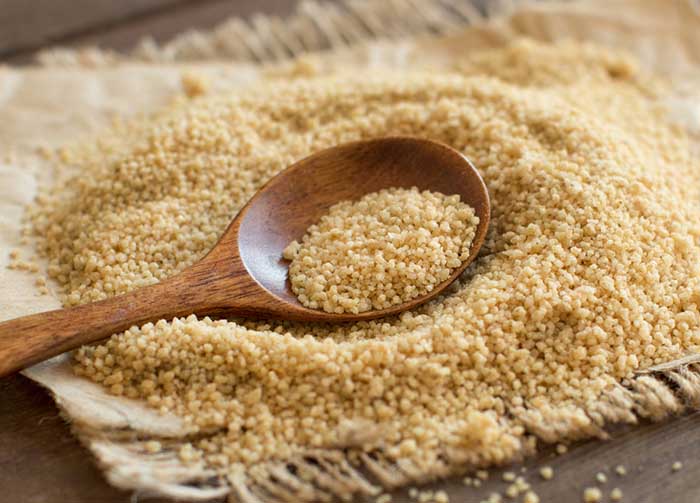
Wheat Couscous is a pasta-like ingredient that’s made from durum wheat semolina and isn’t a grain or seed, like the other items on this list. That being said, if appearance is important to you, wheat couscous is a great option as it closely resembles bulgur.
Wheat couscous makes for a straightforward replacement. For every cup of bulgur you need, substitute one cup of wheat couscous.
Couscous is also fast to cook, taking as little as five minutes for some recipes. You can also cook the couscous with your other ingredients, a technique that is sure to imbue it with added flavor. This ingredient is well-suited for Mediterranean or Morrocan dishes.
Wheat couscous is easy to find in most grocery stores and is one of the more affordable bulgur substitutes on this list. With all of these positives, it may be the perfect substitute for your dish!
Whole Wheat Grains
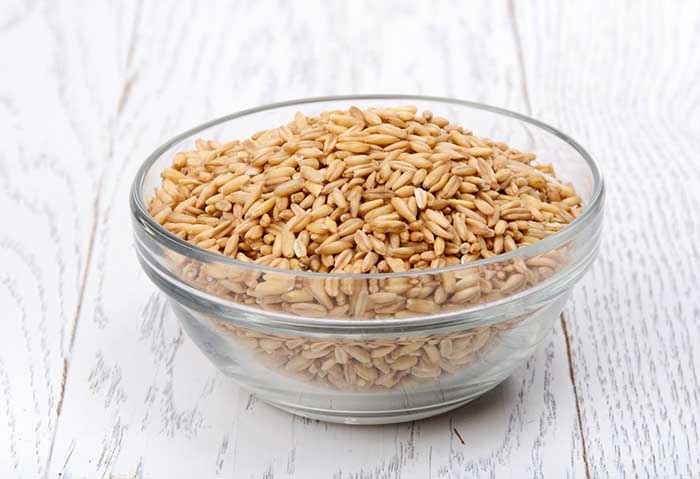
Like other ingredients on this list, whole wheat grains are similar to bulgur in taste and texture. These grains often include specific varieties, such as wheat berries and Kamut.
Kamut is a less-commonly used grain that’s sweeter than bulgur. Despite this, it’s a good choice if you’re out of alternatives. When cooked, it has the nutty taste you’re looking for, in addition to a buttery texture that may even make your dish better!
But, its negatives may outweigh its positives as it takes longer to cook, sometimes up to an hour.
Wheat berries, on the other hand, take less time to prepare, around 30 minutes. This whole wheat grain is perfect as it doesn’t need to be pre-soaked, and it has a neutral flavor that pairs well with any sweet or savory dish.
For both of these grains, you replace them in a 1:1 ratio.
Quinoa

Quinoa is a beloved superfood worldwide. It’s a seed from the quinoa plant and is the number one bulgur substitute option. For every cup of bulgur you need, substitute one cup of quinoa.
It’s versatile and comes in three different varieties:
- Red
- White
- Black
You might use it as a bulgur substitute in soups, salads, stirfries, stews, as a binding agent, and more.
Quinoa is easy to prepare in boiling water and will double in size as it cooks. It can be included in gluten-free burgers if you have specific dietary requirements. You might also use it to replace bulgur if you’re looking for a grain type with a slightly weaker flavor profile.
The best thing about quinoa is its hearty texture that will leave you feeling satisfied. Due to its popularity, it’s easy to find at most supermarkets. Although, it can be on the pricier side.
Whole Wheat Orzo
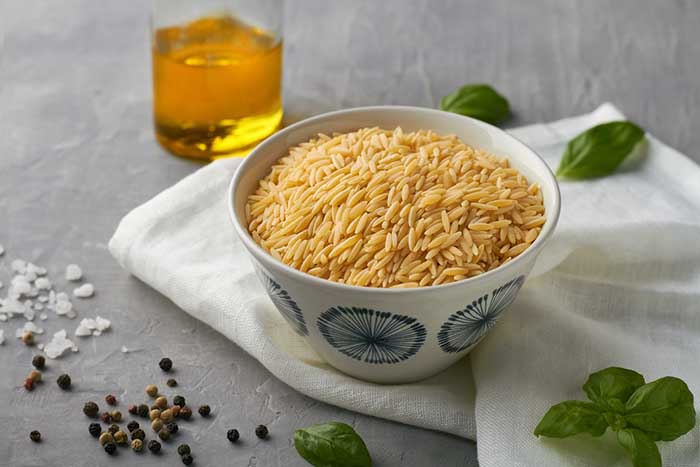
Whole wheat orzo, with its larger grains and light color, may not be the first thing you think of when you’re looking for a replacement for bulgur. But, it will certainly do the job and do it well!
Despite being a type of pasta, after boiling and preparing, it easily reaches the same level of texture and taste as bulgur. Whole wheat orzo is made from enriched durum wheat and is fantastic in Greek and Italian dishes.
It takes between 30 to 40 minutes to prepare this bulgur alternative, and you can replace it in a 1:1 ratio. While this ingredient works well as a base for veggies or meat, it won’t work as a binding agent.
Amaranth
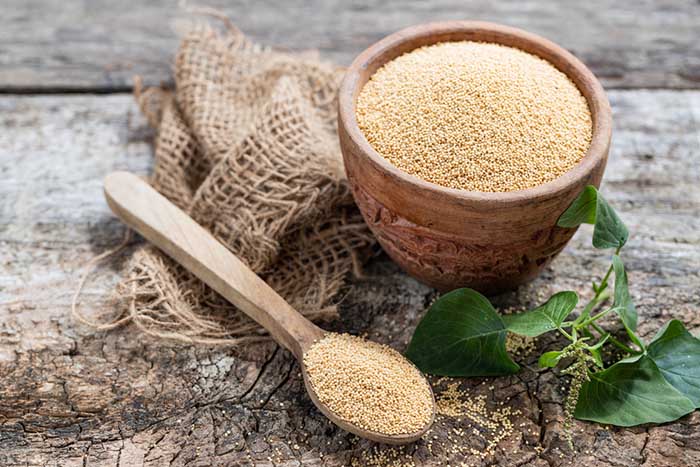
Amaranth is a South American grain that’s similar to quinoa and serves as a great bulgur substitute. Like some other grains on this list, it’s better to let it soak before adding it to a dish, as it can take a long time to cook.
While this option may be harder to find, it’s a fantastic ingredient in many items, including:
- Sweet breakfast porridges
- Soups
- Bread doughs
- Stews
The grain cooks a lot like rice and can even be prepared in the microwave! It’s likely to fit in well with whatever dish you aren’t able to use bulgur for.
Farro
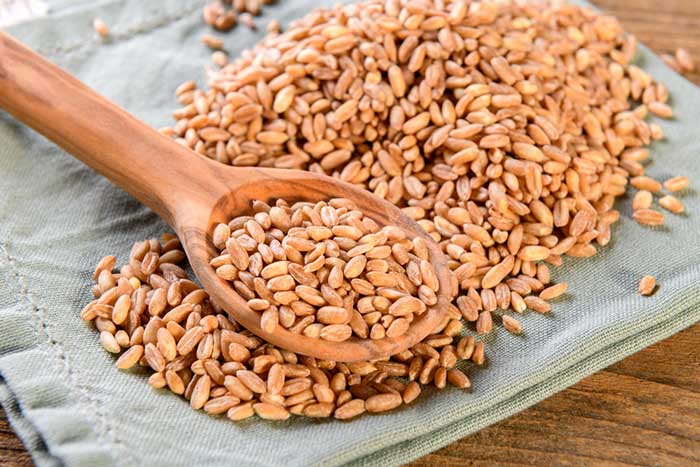
Farro is a popular product that also serves as a great substitute for bulgur. Both products are made from whole wheat grains and have the same flavor. Bulgur grains are slightly smaller than farro, but the two grains have the same coloring.
The only downside is that farro isn’t gluten-free, so it may not be the best grain to replace bulgur in meals with specific dietary requirements.
It’s best as a replacement for stews and an enjoyable topping for a hearty salad. But, it’s important to keep in mind that this grain does take longer to cook than bulgur, around 20 mins.
Teff
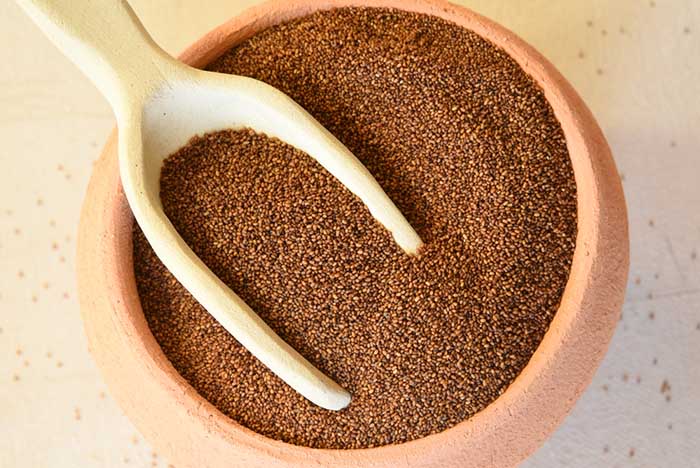
Teff is an unusual ingredient in American cuisine but is very common in countries like Ethiopia, where it is favored for its nutty flavor. The grains are texturally different than bulgur, but not so much to where it would completely change the nature of your meal. It’s best for:
- Porridges
- Stews
- Pilafs
But, it may not be suited to work as a binding agent for foods like burgers or meatballs.
Because bulgur comes fully cooked, a dish of bulgur only takes around 10 minutes to prepare, compared to some kinds of rice and even quinoa or couscous; this can make all the difference in a busy schedule. Therefore, teff is an ideal substitute for bulgur if time is your biggest consideration, as it only takes 8-10 minutes to cook.
The grains are smaller, so you’ll likely need a larger portion of teff compared to how much bulgur you were planning on using.



